Have you ever wondered why there are Anti-Asian hate crimes continuously rising nationwide?
The answer to this question is not easy to respond. The incident of racial abuse has strongly impacted the Asian community in the United States. Anti-Asian hate is sharply increasing; we can hear in the news, social media platforms, and other online media that people of Asian origin get impacted due to racist behavior toward them. The unpleasant anti-Asian rhetoric was pointed at Japan in 1980; nowadays, China is blamed for the COVID pandemic, societal ills, and global economic turmoil. On the other hand, Asian Americans have been insulted, hated, harmed, and killed because of the wave of hate nationwide. Most often, girls, women, and the elderly have been targeted. We can hear that these types of racial attacks occur on the streets, on public transportation, at work, in shops and parks, and in the worst-case scenario, Asians and Asian Americans are stalked in their apartment buildings and homes (Helen, 2022). Incidents such as the death of Vincent Chin in 1982, the Atlanta spa shootings in 2020 where innocent Asian Americans were killed, and many other cases throughout the country depict the continuous attacks against Asians and Asian Americans.
Based on the national report, anti-Asian hate incidents have been increasing, and there were 42.5% of incidents occurred in 2020, whereas in 2021, they increased by 57.5%. Also, the report stated that the majority of incidents took place in public parks (8.0%), public transit (8.4%), businesses (26.9%), and public streets (31.2%). All ethnic groups, approximately 42.8 percent of Chinese Americans, are the ones who report the most hate incidents, followed by 16.1% Korean, 8.9% P/Filipinx, 8.2% Japanese, and 8.0% Vietnamese Americans. Around 69.8% of Asian American and Pacific Islander (AAPI) women report more harassment than AAPI men (63.0%). In addition, according to Stop AAPI Hate, verbal harassment accounted for 63%, making up the highest percentage of reported incidents (Yellow Horse et al., 2022). The following are data on the 20 states with largest number of hate incident, national trends of types of discrimination, reasons for discrimination, and sites of discrimination.
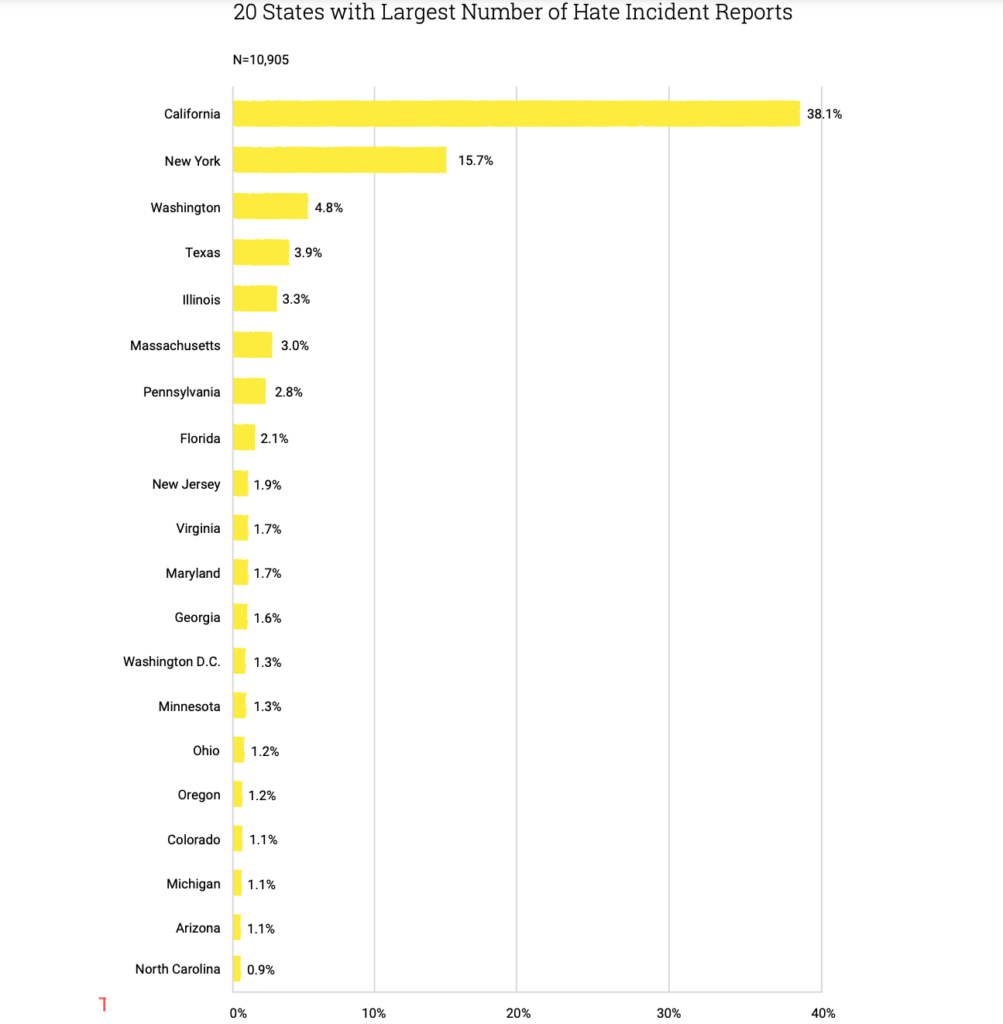
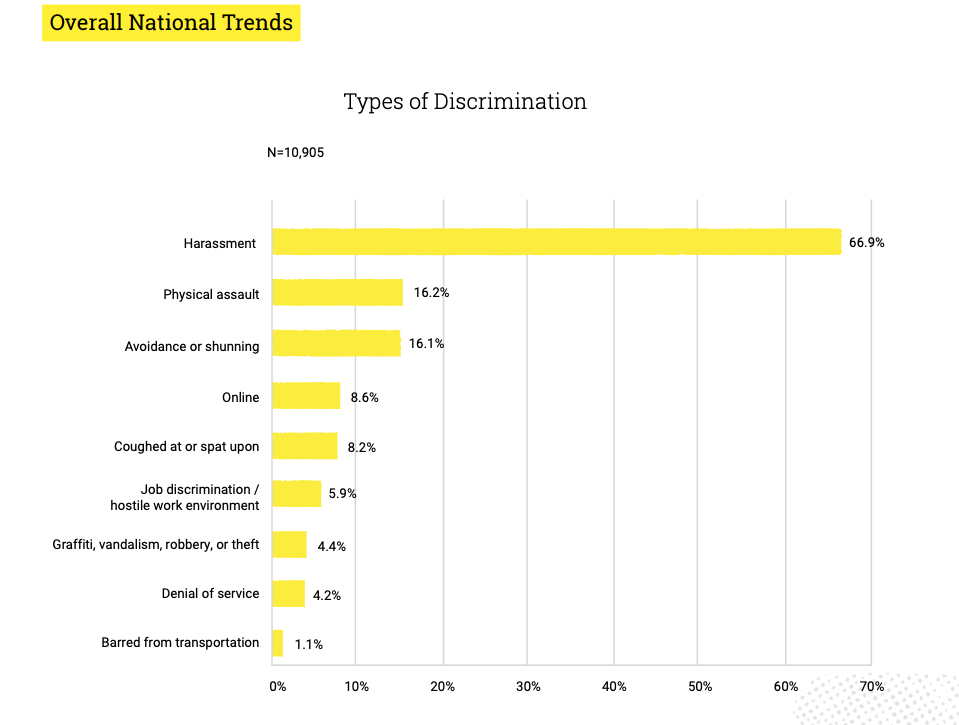
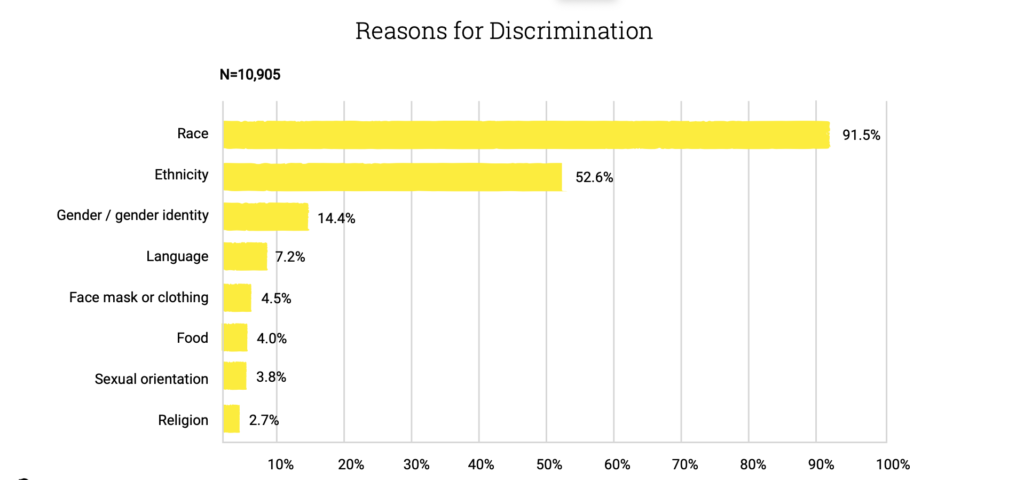
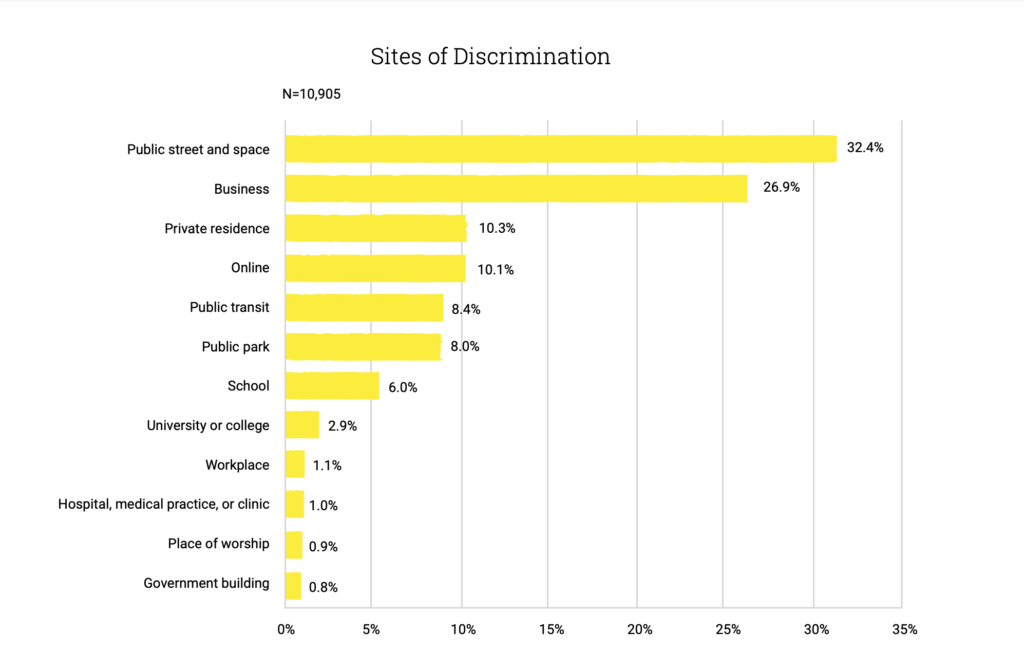
Minoru Yamasaki stated that “If Asian people in America don’t learn to stand up for themselves, these injustices will never cease.”
(Helen, 2022).
Vincent Chin’s death is one example of intense anti-Asian hate. He was killed in Detroit, Michigan, in a racially motivated assault by two white men. Vincent Chin arrived in the United States as a child, and C.W. Hing Chin and Lily adopted him. Vincent, a young man full of dreams working two jobs to fulfill his dream, unexpectedly, a week before his wedding, while enjoying a night out with his friends for his bachelor party, encountered the horrific incident of racism that took his life. As Vincent’s killers were released without punishment, it ignited a new civil rights movement. Asian Americans united with a multicultural and multiracial coalition for equal human dignity and justice. The American Citizens for Justice (ACJ) was created to advocate for Asian Americans’ rights. ACJ wants to make Asian Americans visible in political and social policy contexts and domestic and international economics (Helen, 2022).
“Asian Americans, the supposed “good minority,” are not believed to experience racism-even in the face of anti-Asian hate”
(Helen, 2022).
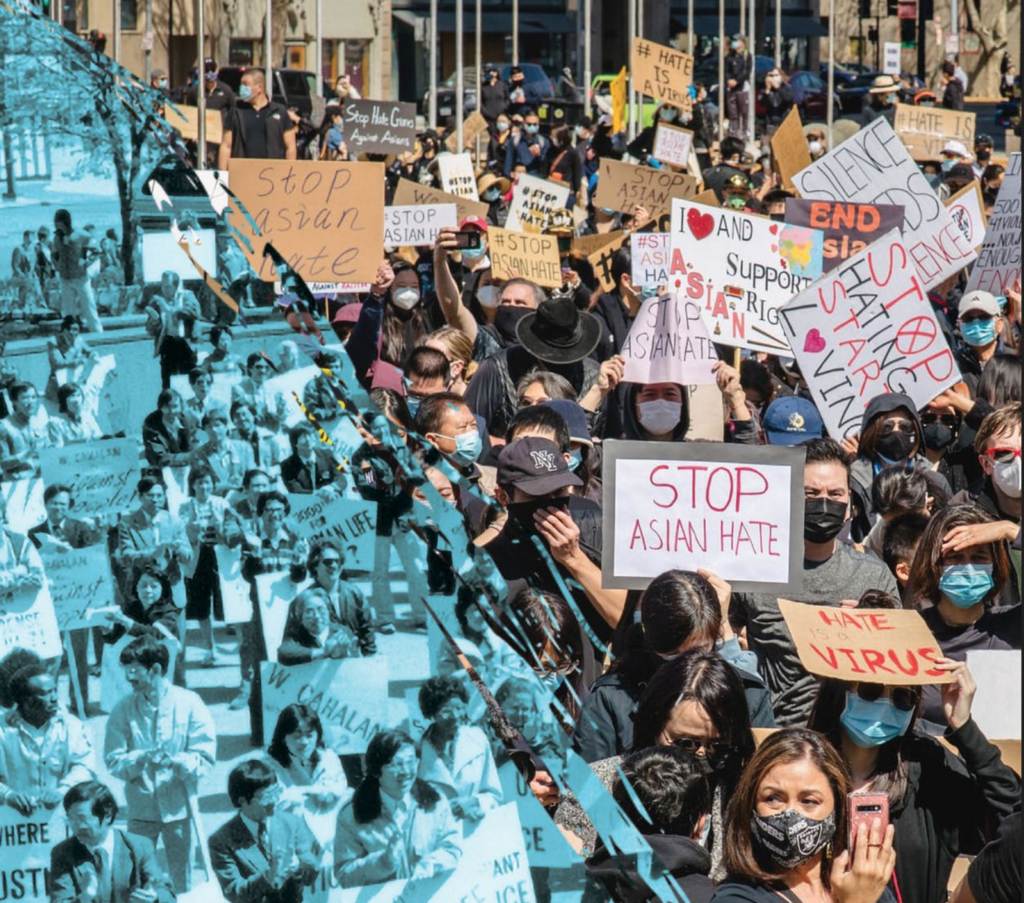
As stated in the national report, in order to stop AAPI hate, states need to invest in community-based efforts to support victims and survivors of hate. For example, offering mental health support, supporting programs for victim and survivor, providing culturally responsive health resources, and language translation access. Moreover, educating people can help to prevent racism. Additionally, this can decrease bullying and harassment in schools and promote solidarity and racial empathy. Stop AAPI Hate is working with educators, policymakers, and experts on the topic to create Asian American framework for states to adopt and follow (Yellow Horse et al., 2022).
Furthermore, creating a statewide framework can help to prevent street harassment. Harassment on the street affects people’s feelings of safety, freedom of movement, and mental health. It is vital to strengthen civil rights protections against hate at businesses.
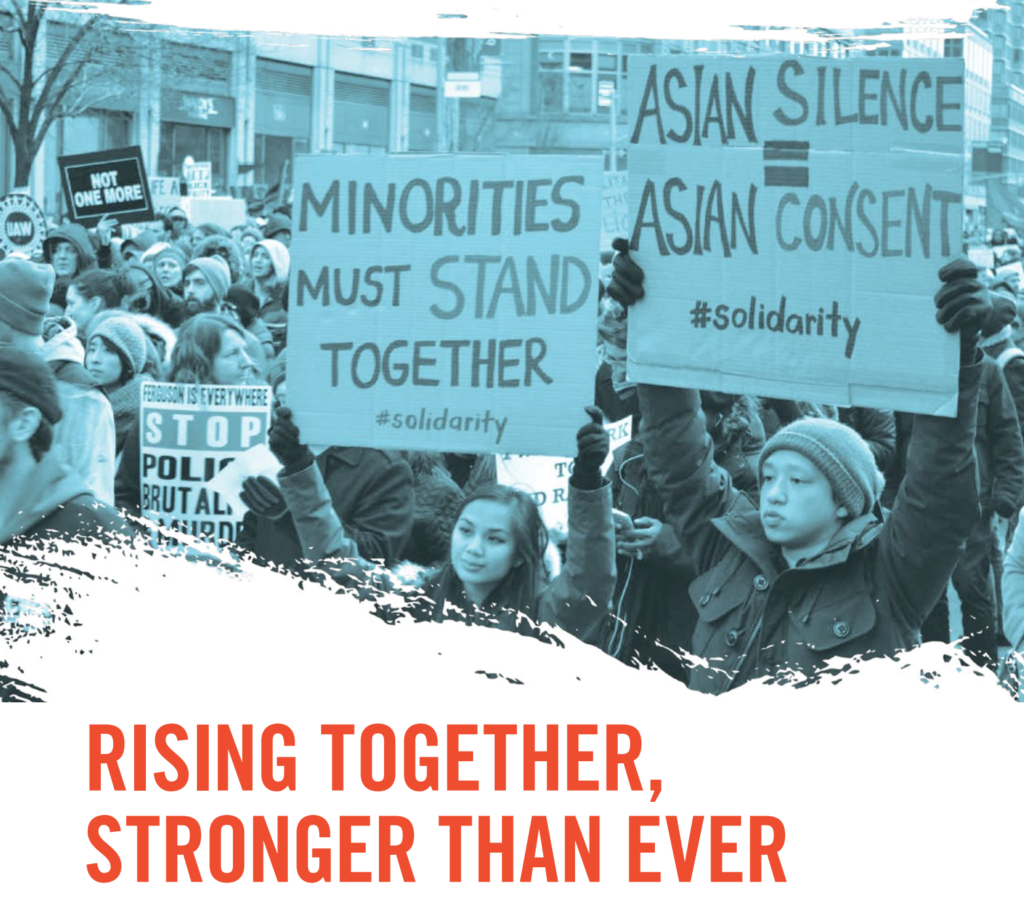
It is essential to stand up against hate, and the following are the steps that can be helpful.
Support: It is vital to support each other.
Acknowledge: Recognizing that anti-Asian racism occurs; therefore, it is paramount to educate yourself and others.
Oppose and reject: It is essential to stand against hateful languages and policies.
Prepare family members and friends: Discuss buying, name-calling, and racial prejudice with family members and friends. Empowering family members and friends with language and actions to respond.
Accountability with consequences: Engaging local, state, and national officials.
Practice: It is essential to practice your own strong defenses and reaction.
Report: It is considered valuable to report racial incidents and alert media authorities.
References
Yellow Horse, A.J., Jeung, R., & Matriano, R. (2022). Stop AAPI Hate National Report. Stop AAPI Hate. https://stopaapihate.org/wp-content/uploads/2022/03/22-SAH-NationalReport-3.1.22-v9.pdf
Helen, Z. (2022). The Vincent Chin Legacy Guide: Asian Americans building the movement. Vincent Chin & American Citizens Justice. https://www.vincentchin.org/legacy-guide/english
